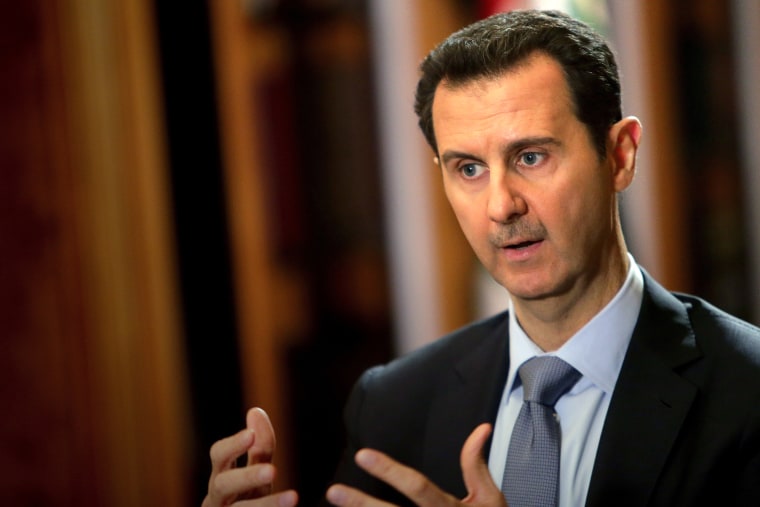The U.S.-led coalition battling ISIS militants is passing information about airstrikes to the Syrian regime through third parties including Iraq, according to President Bashar Assad.
However, Assad denied there had been direct cooperation between Damascus and the Obama administration.
In a rare interview, he also ruled out joining the U.S.-led coalition against ISIS as long as Washington was supporting rebels battling his regime, calling them "terrorists."
"We don't have the will and we don't want [to] for one simple reason: because we cannot be [in] alliance with the country [that] supports the terrorism," Assad told the BBC's Jeremy Bowen.
The U.N. estimates more than 200,000 have been killed by Syria's civil war, which has triggered a humanitarian crisis and created three million refugees.
Assad said he was not swayed by Washington's apparent softening of attitudes to his regime since the emergence of ISIS — which has violently seized territory in Syria and Iraq — as a more urgent regional threat. "We don't breathe through the Americans, we only breathe through our citizens," he said. "So it's not a lifeline for us."
Assad told the BBC that there had been contact between the U.S.-led coalition and Syria as the two sides were separately carrying out airstrikes against ISIS using Syrian airspace, but he said: "There's no direct cooperation."
He said information has been passed "through a third party — more than one party — Iraq and other countries. Sometimes they convey a message, general message, but there's nothing tactical."
Assad added: "There is no dialogue. There is, let's say, information, but not dialogue."
Asked if he had reciprocated by giving any information back to the coalition, he grinned and replied: "No."
NBC News was not immediately able to obtain comment from the State Department on Assad's claims.
The U.S. took a strong position against Assad after the uprising against his rule erupted in 2011, saying he should leave power. It has also funneled support including limited amounts of military aid to some armed opposition groups. U.S. officials say they have not relented in their goal of Assad leaving power but their priority has switched to fighting ISIS.
Assad also insisted his government forces were not using barrel bombs in rebel-held areas as part of the country's five-year civil war.
"They're called bombs. We have bombs, missiles and bullets," he said. "There [are] no barrel bombs, we don't have barrels. I haven't heard of the army using barrels, or maybe, cooking pots."
He also claimed he was concerned by the plight of civilians and the effects of the war, insisting: "I'm a human."
Reuters contributed to this report.
This story originally appeared on NBC News
